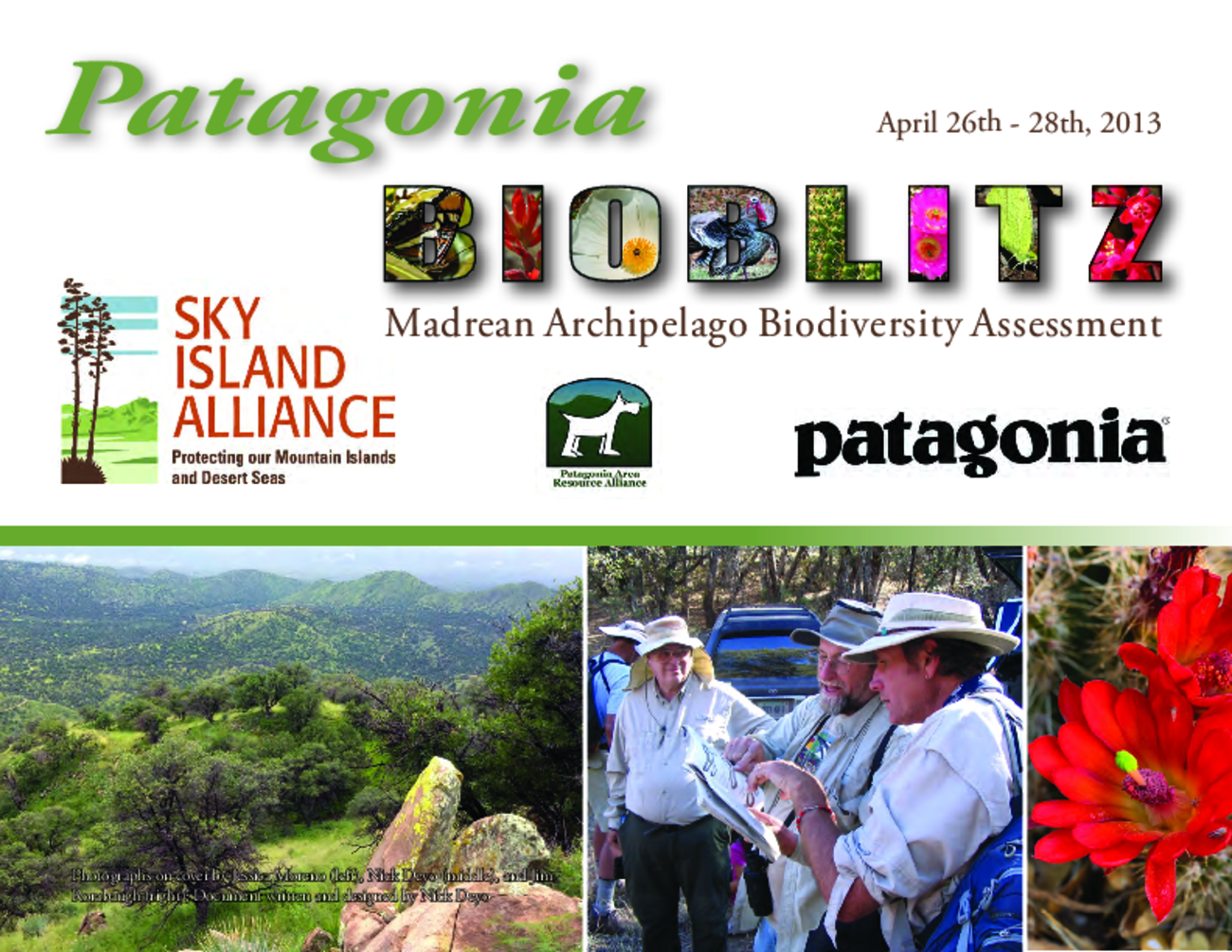Patagonia Mountains BioBlitz Report
The weekend of April 26th through 28th, 2013 marked an exciting event for the community of Patagonia, Arizona. Biologists from all over the state gathered to document and celebrate the tremendous biodiversity of the Patagonia Mountains, one of the southernmost Sky Island ranges in the United States, and an area threatened by four proposed mining operations. A bioblitz is a relatively recent term describing a short but intense period of biological surveying, meant to identify as many species as possible for a designated area, while also involving the public and raising awareness about the importance of conservation.
This bioblitz was an effort of Sky Island Alliance’s Madrean Archipelago Biodiversity Assessment (MABA) project and the Patagonia Area Resource Alliance (PARA). MABA is an ongoing effort to document and conserve the biodiversity of the Sky Island Region--this event marked MABA’s seventh biodiversity expedition and its first event outside of Mexico. PARA is a grassroots organization of volunteer community members committed to preserving and protecting the Patagonia area.
30 expert botanists, entomologists, herpetologists, ornithologists, and mammalogists, representing organizations such as The University of Arizona, Arizona State University, The Borderlands Habitat Restoration Initiative, The Nature Conservancy, Southeast Arizona Butterfly Association, Ravens-Way Wild Journeys, the Hummingbird Monitoring Network, and the Arizona-Sonora Desert Museum, as well as a cadre of trained volunteers from Tucson and Patagonia, attended the event. This bioblitz focused primarily on four main areas located near proposed mining activities--these transects are depicted on the map on the following page. Other events included a Sky Island Biodiversity talk given by Dr. Tom Van Devender, a lecture describing proposed mining activities in the area by SIA’s Jenny Neeley, and an informational booth located in Patagonia’s community park. Over 900 species records were recorded over the course of the weekend, resulting in the documentation of 418 different species of plants and animals.

